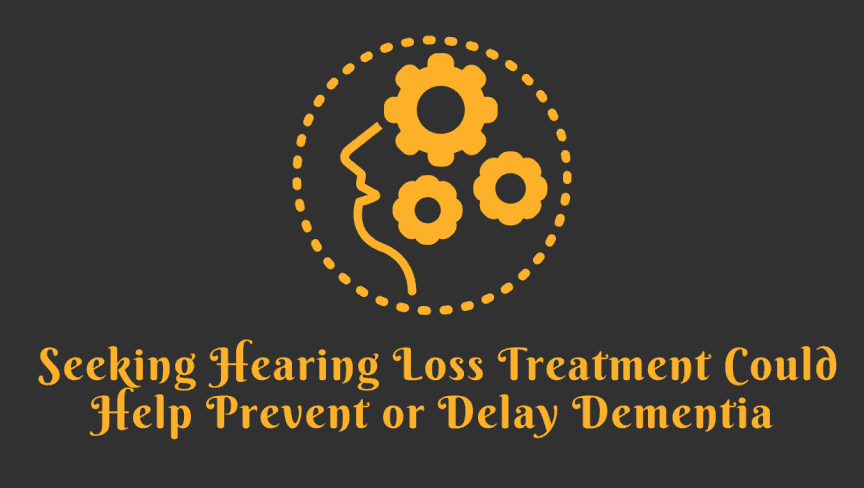- The Emotional Journey of Accepting Hearing Loss - October 25, 2024
- Making a Style Statement with Hearing Aids This Fall - October 15, 2024
- Fireplace Safety and Hearing aids - October 4, 2024
If you’re over the age of 65, there is a 1 in 3 chance of having hearing loss. And if you’re over 75, you have a 1 in 2 chance of having hearing loss. While changes in hearing health can be a normal part of aging, living with untreated hearing loss isn’t a good idea. Untreated hearing loss can lead to a number of negative health outcomes, including a higher risk of dementia or Alzheimer’s disease.
How Hearing Loss Affects Your Wellbeing
Do you have a mild or moderate hearing loss? You might think that hearing loss isn’t having a big effect on your life just yet. However, untreated hearing loss affects you in more ways than you realize.
- Difficulty communicating: Hearing loss makes it harder to follow conversations, and you’ll have a hard time hearing what’s being said.
- Increased depression: When you can’t communicate with your loved ones, you have a higher risk of social isolation, anxiety, loneliness, and depression.
- Reduced mobility: If you can’t hear all the sounds around you, it’s hard to feel safe when you’re away from home. People with hearing loss have reduced mobility and less independence.
- Higher risk of accidents: Living with hearing loss can lead to a higher risk of accidents. You can’t hear the sounds around you, and you might miss warning sounds in your environment.
How Hearing Loss Affects Your Brain
Not only does hearing loss affect your overall health and even your mental health, but it also affects your brain. If you’re living with untreated hearing loss, you will experience more cognitive decline. That’s because the brain is using all its energy straining to hear. This doesn’t leave enough brain power for all the other tasks, like making sense of the words, consolidating memories, or coming up with the right response. Your brain gets tired easily, but doesn’t get the right kind of exercise to stay healthy. That’s why people with hearing loss have a higher risk of developing dementia or Alzheimer’s disease.
How Hearing Loss Can Lead to Dementia
If you’re living with untreated hearing loss, there are a number of sounds you’re not hearing. The auditory regions of your brain don’t receive a clear picture of the sounds around you, and the cells in the auditory regions of the brain can deteriorate from lack of use. As these areas of the brain weaken, there’s more chance of cell death and cognitive decline.
There are a number of common symptoms for both hearing loss and dementia. These include:
- Difficulty concentrating on a task
- Forgetfulness
- Struggling to follow conversations
- Getting confused
- Having a hard time planning future events
Living with untreated hearing loss can change or weaken your brain, and this increases your risk of developing dementia.
How You can Prevent or Delay Dementia
Sadly, there is no cure for dementia or Alzheimer’s disease. Researchers are learning more about this brain disease every day, but so far all they can offer are ways to prevent or delay dementia.
One of the best things you can do for your brain health is to treat your hearing loss. Hearing aids will help your ears pick up more of the sounds around you, and send more sound signals to the brain. You’ll be able to hear sounds without straining to hear, and have enough energy to give your brain the right kind of exercise, like having smooth conversations with your loved ones, playing outside with the grandkids, or working on a puzzle with friends.
Hearing aids can slow the rate of cognitive decline and improve your memory. They’ll help your brain stay healthy for longer, and they could prevent or delay dementia.
How to Find Hearing Aids
Finding hearing aids is easy and our hearing health specialists are waiting to help. We’ll start with a hearing test to find out more about your hearing loss. Then, we’ll find the hearing aids that can help you hear conversations, hear the sounds around you, and hear even in places with lots of background sound.
Wearing hearing aids will make it easy to hear, and they’re good for your brain! And, wearing hearing aids could help prevent or delay dementia, so make time to learn about your hearing aid options. Contact us today!

